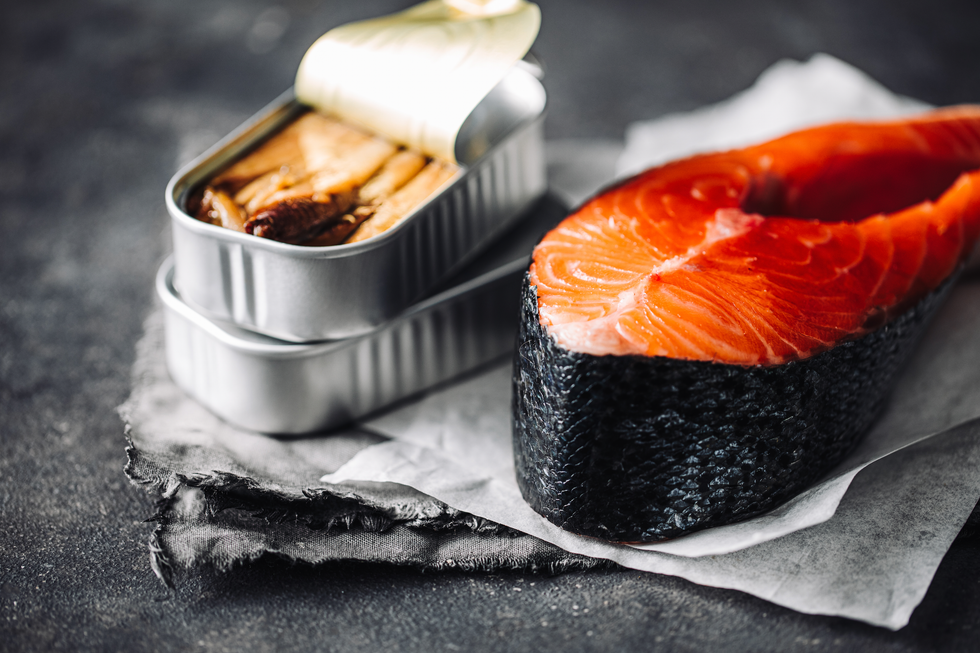An expert shares how much protein to eat every day around menopause
GETTY
Weight loss can become more difficult around perimenopause
Don't Miss
Most Read
Trending on GB News
Women typically experience menopause between the ages of 45 and 55, and this can lead to unwanted weight gain.
To stop this from happening, an expert shared the types of foods you should aim to eat at this stage of life.
A diet high in protein and fibre is great for weight loss at any age but can be particularly beneficial for menopausal women, according to psychotherapist at Open Mind Health Maria Rheba Estante.
She told GB News: "Research from the North American Menopause Society indicates that women should focus on protein timings. Consuming 25g to 30g of protein per meal helps preserve muscle mass and boost metabolism

Fish is high in protein and experts recommend eating 2-3 times a week
GETTY"Also, increase your fibre intake. Aim for 25g to 30g daily to promote satiety and gut health."
The expert also recommended limiting processed sugars and eating plenty of fruits and vegetables.
Various studies have shown protein can boost the metabolism and help people feel fuller, which makes overeating less likely.
An increased metabolism means the body will burn more fat and calories, even while resting. High-protein foods include meat, fish, tofu, dairy, eggs and protein supplements so aim for at least 25 grams per meal.
More specifically, Maria cited servings of some items, as recommended by the Journal of Nutrition.
- 2-3 servings of fatty fish weekly (rich in omega-3s)
- 5-7 servings of colourful vegetables daily
- 2-3 servings of whole grains daily
- 2-3 servings of calcium-rich foods daily
The expert suggested checking with a professional before making any drastic diet changes, but following this advice can help with menopause symptoms as well as weight management.
LATEST DEVELOPMENTS

Strength training is important to maintain muscle mass and bone density around menopause
GETTYMaria continued: "Before any dietary or active lifestyle changes always first consult your doctor. The hormonal changes during perimenopause and menopause can make weight management particularly challenging for women.
"Research indicates that strategic dietary modifications can help counter the metabolic changes that occur during this life stage.
"Studies show that this approach not only supports weight management but also helps reduce other menopausal symptoms like hot flashes and mood fluctuations."
The expert added it is important to pair a healthy diet plan with regular exercise to ensure you maintain muscle mass and bone density.








